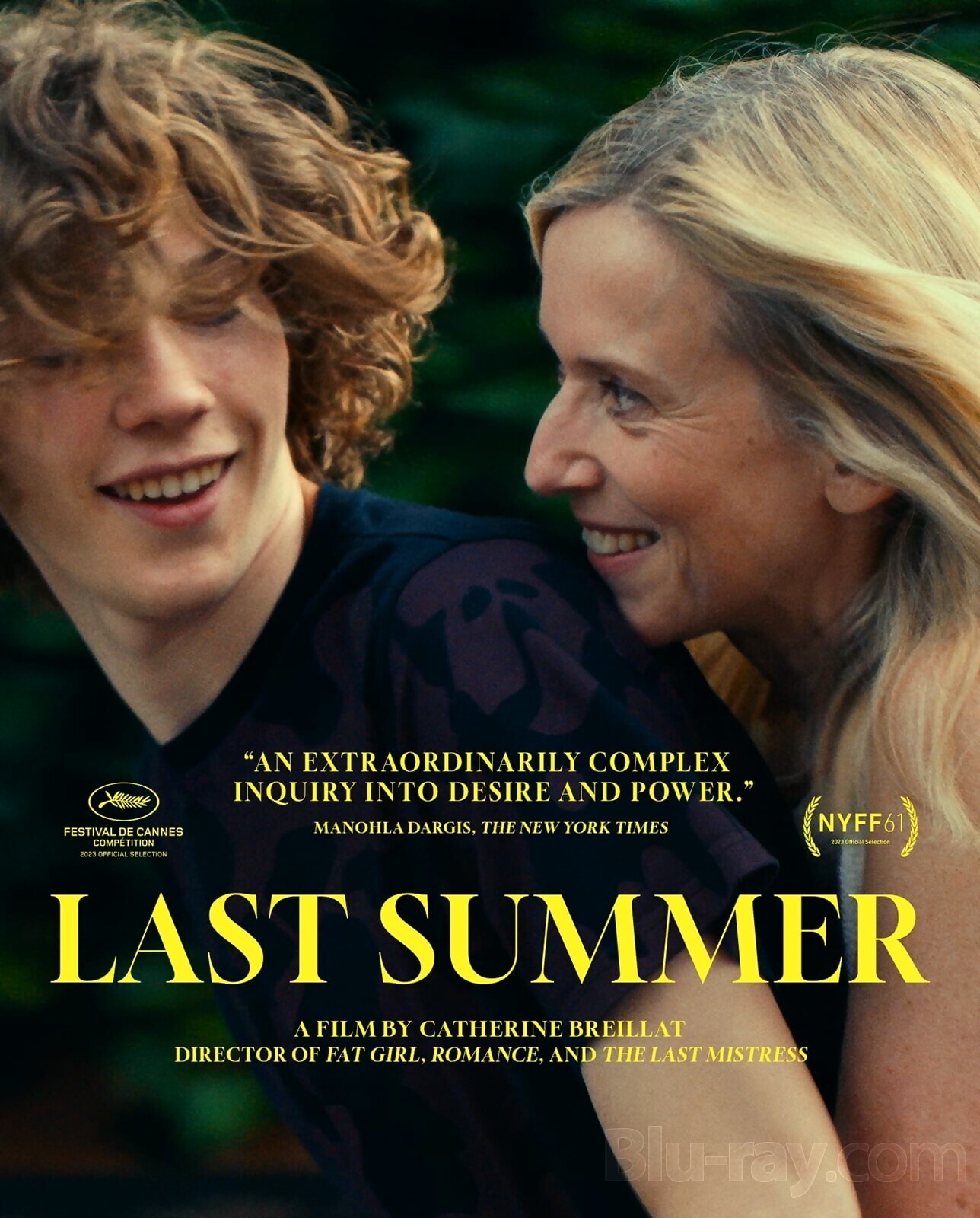Anne (Léa Drucker) is an attorney who works with child services to help minors who are victims of abuse. She lives a seemingly idyllic life with her husband Pierre (Olivier Rabourdin), a somewhat checked-out businessman with a teenage son named Theo (Samuel Kircher) from a previous marriage whose presence begins to disrupt the contented household. Anne feels uncontrollably drawn to the wild and handsome Theo, and they begin a torrid affair seemingly unbeknownst to Pierre. Anne is faced with a dilemma to stop the affair and confront her own desires or give in and let nature take its course. What decision will she make, and what will the repercussions be on her family?
What was it that drew acclaimed and controversial director Catherine Breillat to remake the 2019 Dutch film Dronningen a.k.a. Queen of Hearts after being largely absent from the film world for a decade? It’s not hard to see many of the same preoccupations in Last Summer that Breillat has dealt with in previous films, particularly the struggle with overwhelming emotion while entangled in a forbidden desire. From her debut film A Real Young Girl to her most recent film prior to this, Abuse of Weakness, and nearly everything in between, Breillat is fascinated with how female sexuality is harnessed in service of manipulation and emotional satisfaction as well as how it can lead to damnation. Not to say that Breillat is overtly religious or sanctimonious. In fact, her films often have more of a hazy naturalism rooted in the here and now with a firm grounding in a kind of heightened reality where passionate urges often give way to taboo behavior devoid of any kind of overt judgment. Last Summer finds Breillat on solid footing with a central relationship between Anne and Theo garnering immediate controversy. But Breillat handles the situation in such an organic way that it never feels forced. Theo is young and headstrong. In perhaps the biggest departure from the original Dutch version, it’s Theo and not Anne who is the aggressor in the relationship. This changes the dynamic entirely. Anne’s character is no longer seen as selfish and manipulative. Instead she is a victim of her passions, giving in rather than conquering. But this is all smoke and mirrors. Anne’s profession puts her in a position for her to know exactly what she is doing, giving her character an added dimension of complexity. She knows it’s wrong. She knows teenage boys are a raging pit of hormones. She could push him away, but she doesn’t. Despite not being the aggressor, she is still complicit. It’s also worth noting that Anne never falls out of love with her husband Pierre, even at the peak of her affair. This makes this third act more believable in terms of the decision she makes. Breillat frames the film in tight medium shots and close-ups, increasing the intimacy of the interactions just by virtue of how the film is directed, showing Breillat’s skill in exposing what lies beneath.
Janus has given Last Summer a very nice, vibrant yet naturalistic transfer. Breillat shot the film using lots of bright sunshine natural lighting which captures the spirit of the title of the film really well. There is no noticeable damage or blemishes in the transfer either. Very well done overall. For audio, we also get a nice, subtle 5.1 surround sound track in French that immerses the viewer in the sights and sounds of the season quite well. It’s not a flashy track but it is a very good one. The primary extra is a Meet the Filmmakers interview with director Breillat where she discusses what led her into directing and her partnership with Saïd Ben Saïd on Last Summer as well as scene-specific comments on the film. Also include is a physical booklet with an essay on filmmaking writer/professor Michael Joshua Rowin and a trailer.
Film buffs have waited over a decade for Breillat’s next controversial yet nuanced drama, and Last Summer delivers everything that Breillat fans look for in her films in a beautifully shot and elegantly written package.

